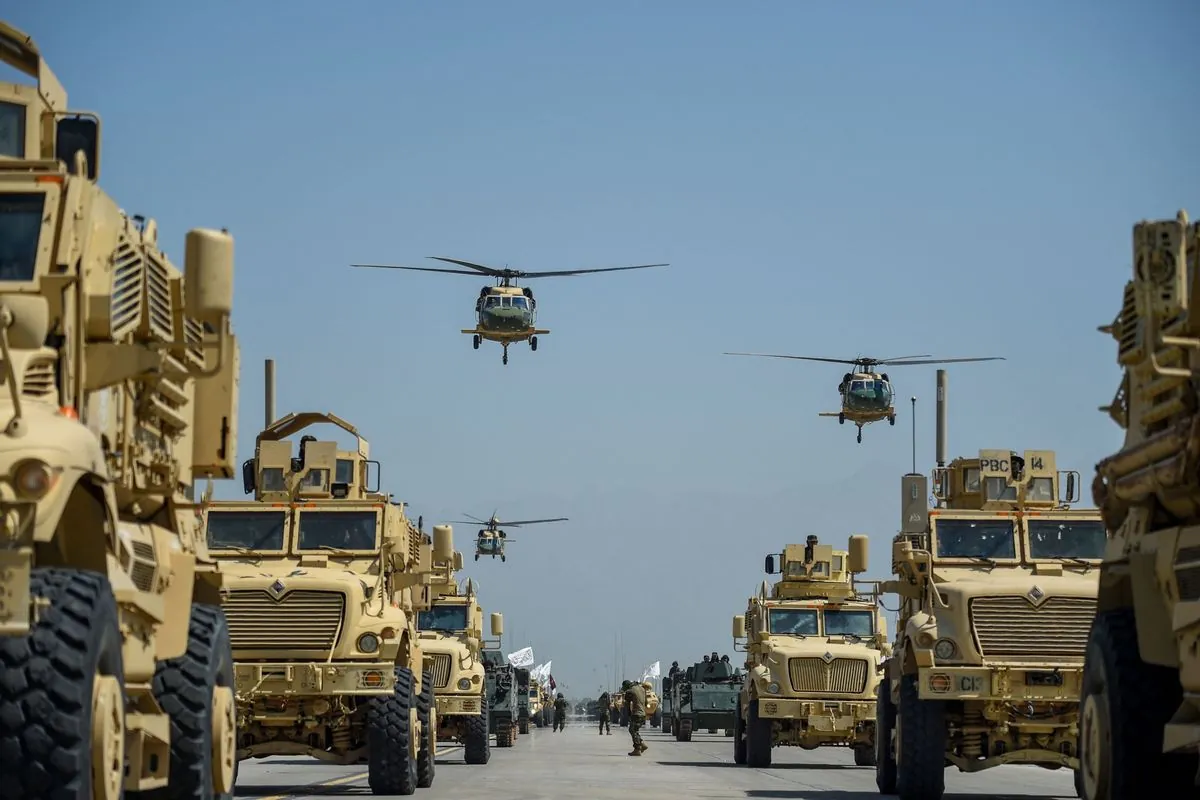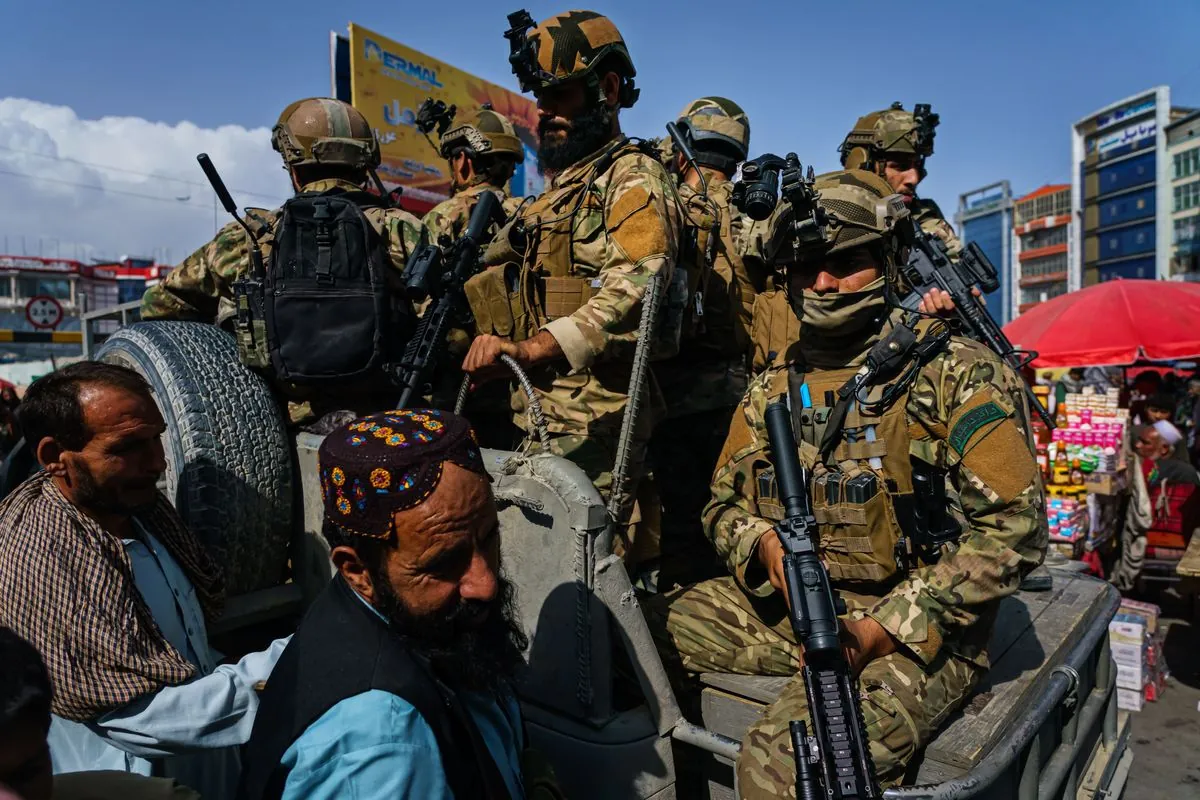Taliban Marks 3 Years of Rule, Claiming Sharia-Based Governance in Afghanistan
Taliban celebrates three years in power, asserting implementation of sharia law. Concerns persist over women's rights restrictions and humanitarian crisis, despite some economic improvements.

Three years have passed since the Taliban assumed control of Afghanistan, marking the occasion with a significant military display at Bagram Air Base near Kabul. The group's supreme spiritual leader, Haibatullah Akhundzada, declared that Afghanistan has been transformed into an Islamic sharia-based nation.
"The system is Islamic and sharia-based, sharia is being implemented. As long as we are alive, we will uphold and apply Allah's (God's) faith and sharia upon ourselves and others."
This assertion comes amid ongoing concerns from the international community regarding the Taliban's interpretation and application of sharia law, particularly its impact on women's rights and freedoms.
The Taliban's return to power on August 15, 2021, followed a rapid offensive as U.S.-led foreign forces withdrew after two decades of conflict. The Afghan security forces, despite years of Western support and training, quickly disintegrated, leading to the departure of U.S.-backed President Ashraf Ghani.

The military parade showcased tanks and weapons at Bagram, once the largest U.S.-led coalition base in Afghanistan. Much of this equipment, originally provided to the Afghan military by foreign forces, was seized by the Taliban during their takeover.
In the three years since assuming control, the Taliban administration has reported some economic improvements, such as increased exports. The widespread fighting that characterized previous years has largely subsided, although urban areas continue to experience attacks, some claimed by Islamic State radicals.
However, the country faces a severe humanitarian crisis, with over half the population requiring aid for survival. This situation is exacerbated by significant reductions in development funding and restrictions on the banking sector led by Washington.
Western governments have linked any potential recognition and easing of sanctions to changes in the Taliban's policies, particularly regarding women's rights. Current restrictions include barring girls above the age of 12 from formal education, limiting women's travel without a male guardian, and banning them from gyms and parks.
Human rights organizations have strongly criticized the lack of progress in addressing these issues. Samira Hamidi, Regional Campaigner for South Asia at Amnesty International, expressed disappointment, stating, "Three years on, the absolute absence of any concrete measures in addressing the human rights catastrophe in Afghanistan is a source of shame for the world."
The situation in Afghanistan remains complex, with the country's rich history and diverse ethnic makeup adding layers to the current challenges. As one of the world's youngest populations, with a median age of 18.4 years, Afghanistan's future hinges on addressing these pressing issues while navigating its complex geopolitical landscape.


































